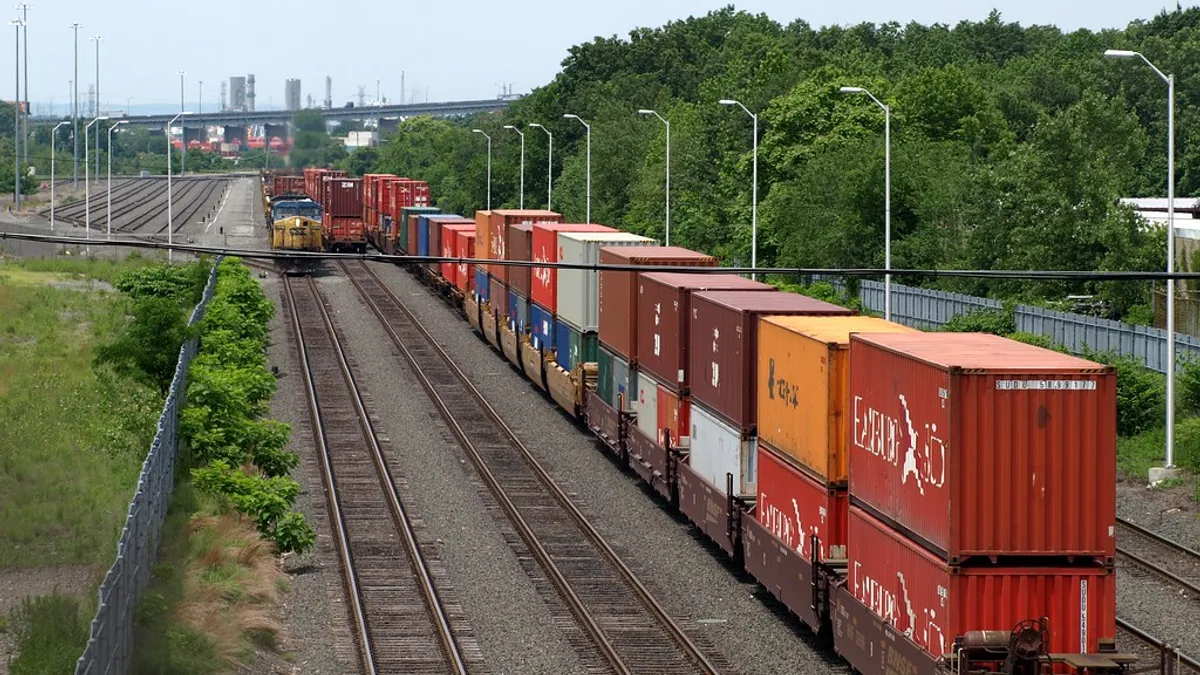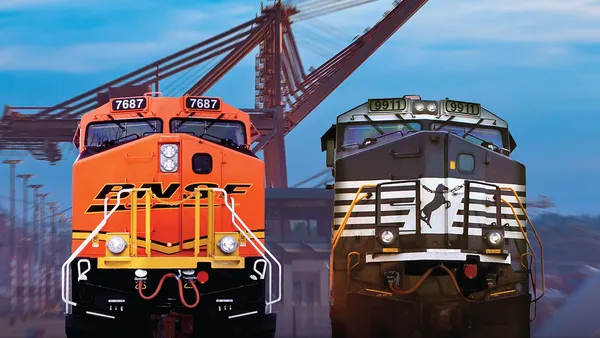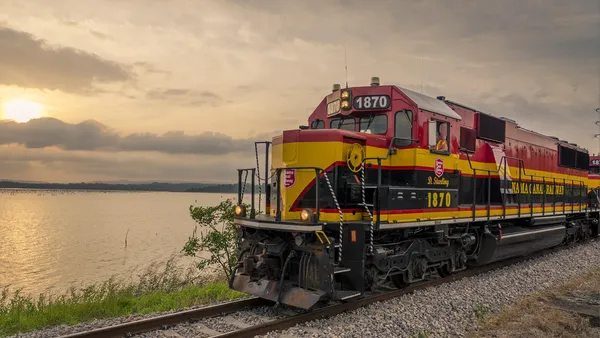Dive Brief:
- Precision-scheduled railroading (PSR) makes it easier to quickly react to swings in volume related to COVID-19, according to Lance Fritz, CEO of Union Pacific Railroad, speaking at the Barclays Industrial Select Conference in Miami Wednesday.
- Kansas City Southern CEO Patrick Ottensmeyer said at the same conference the railroad has yet to see a major impact from the near-halt of freight leaving China. "I’m not really aware of any feedback we’ve gotten from customers that have indicated plans to slow down," the CEO said.
- Some railroads are more susceptible to volume dips and spikes than others, since each railroad relies on freight coming into a different constellation of U.S. ports. The National Retail Federation warned last week U.S. ports in aggregate may see a 13% drop in imports in February due to the outbreak.
Dive Insight:
Union Pacific is particularly exposed to dips in Asia imports, because its network favors West Coast ports. On Jan. 24, the railroad released 2020 expectations of a roughly 1% volume increase for the year and Fritz reiterated that guidance this week. The Port of Los Angeles reported imports down 5.4% year-over-year in January and will release February numbers in roughly two weeks. Already taking a hit for months related to tariffs, Port of Los Angeles Executive Director Gene Seroka called the COVID-19 outbreak a "new layer of uncertainty to global trade."
The Barclays analyst hosting the conference implied to Fritz that railroads have not traditionally been skilled at handling spikes in volume. And the trend of PSR catching on at every Class I railroad (except BNSF) means most railroads are running lean in terms of equipment and staff.
"I think it's a false choice to think you've got to sacrifice operating ratio and efficiency to provide a better service product in a time of change," said Fritz.
Operating ratio (OR) is a measure of efficiency that has become a north star metric for railroads in the age of PSR. Cutting locomotives, building longer trains and reducing instances when the railroad needs to handle a railcar drives down equipment needs and staff costs — and increases OR.
PSR is designed to leave railroads only with the resources they absolutely need, according to proponents — so what happens when need changes dramatically as it might when normalcy returns to Chinese exports?
"When volume is spiking or dropping dramatically rapidly I think that puts all the more pressure on running the network consistently and reliably," said Fritz.
The CEO then pointed to this time last year when Union Pacific's main East-West line was severed in bad weather. The railroad's speedy recovery is evidence that PSR begets agility, he said.
"The answer to that issue isn't flooding the network with a bunch of equipment. The answer is to stay disciplined and move in a manner that keeps your consistency and reliability of service that provides the best overall outcome for all of our customers," said Fritz.
He also suggested if shippers want a fast snapback, they need to take some responsibility for the flow of freight.
"There's gonna be a lot of screaming: 'Put some more wells into the LA basin!' That's a bad idea, because what will happen is we'll put the boxes on wells, they'll go to destination, there's not space to take them off because nobody's changed their behavior at end market. And we're going to sit on a bunch of boxes on our wells on our railroad taking really precious capacity," said Fritz.














